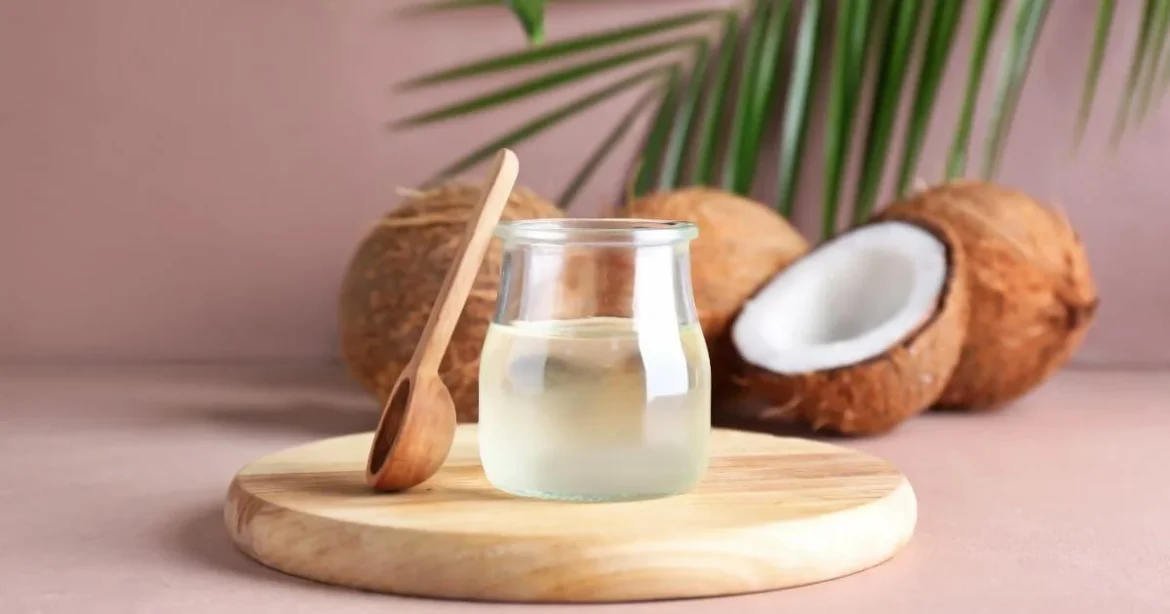“Sex is better when it’s wetter” may be a playful slogan, yet the lubricant aisle can feel anything but fun when you are staring at dozens of bottles with unpronounceable ingredients. That confusion is what pushes many people to ask the internet can you use coconut oil as lube. Coconut oil is cheap, smells like vacation, and sits in most kitchen cabinets—so why not press it into bedroom duty? Before you drizzle, let’s explore the science, the benefits, the very real risks, and safer alternatives so you can decide for yourself can you use coconut oil as lube without putting pleasure or health on the line.
Why People Reach for Coconut Oil
Coconut oil boasts a reputation for being “all natural,” antibacterial, and ultra-moisturizing. Beauty blogs praise it for soft skin and shiny hair. When lovers wonder can you use coconut oil as lube, they usually have three motives in mind:
- Natural moisturizer – It feels silky, reduces friction, and alleviates dryness.
- Long-lasting glide – Oil does not evaporate the way water does, so you can go for marathon sessions.
- Sensitivity friendly – Many folks experience burning or itching from additives in commercial products and hope an unprocessed oil will be kinder.
Those perks are real, yet they come with trade-offs that every body owner should understand before making coconut oil the go-to answer to can you use coconut oil as lube.
Breaking Down the Benefits
1. Skin-Softening Hydration
Virgin coconut oil is rich in medium-chain fatty acids that lock moisture into the epidermis. Applied externally on the vulva or penis, it can soothe chafed skin after intense play.
2. Extended Play Time
Because coconut oil does not dry out quickly, you will not need to re-apply every few minutes. For partners who dislike pauses, that longevity is appealing whenever they ask, “Really, can you use coconut oil as lube for an hour-long session?”
3. Budget Friendly
A single jar often costs less than a boutique lubricant and lasts for months, making the option attractive to college students, large polycules, or anyone tightening their budget.
The Potential Risks You Must Weigh
Answering can you use coconut oil as lube responsibly means examining safety from every angle.
Condom Compatibility
The biggest red flag is latex erosion. A landmark 1989 study showed mineral oils weaken latex by as much as 90 percent in under a minute, and later research suggests plant oils behave similarly. If pregnancy prevention or STI protection relies on latex condoms, coconut oil is a hard no. Polyurethane and nitrile condoms hold up better, but always check the packaging.
Vaginal Health & pH Balance
Coconut oil’s thick consistency can trap bacteria against delicate mucous membranes and raise the risk of bacterial vaginosis or yeast infections—especially for those already prone to imbalances. If you frequently treat BV or candidiasis, asking can you use coconut oil as lube should involve a healthcare conversation first.
Anal Play Considerations
Oil-based products make latex gloves and condoms unreliable for anal play, a practice already carrying higher STI transmission risk. In addition, oils can coat the rectal lining and complicate clean-up.
Pore Clogging & Residue
Coconut oil is comedogenic. On body parts with hair follicles (think inner thighs, buttocks), lingering residue may cause clogged pores or folliculitis. Because oil is not water-soluble, you’ll need warm soapy showers—and possibly multiple passes—to remove film after steamy fun.
Allergies & Sensitivities
Tree-nut allergies are uncommon with coconut, yet some people develop contact dermatitis. Patch-test on your inner arm before slathering sensitive zones.
What the Experts Say
Gynecologists with the American College of Obstetricians and Gynecologists advise caution. They note that oil disrupts the vagina’s self-cleaning ecosystem and compromises latex barriers—two issues that tip the scale when clients ask can you use coconut oil as lube during routine exams. Sex educators echo this: use coconut oil only when condoms are off the table, partners are STI-tested, and vaginas in the mix have no history of recurrent infections.
Science Snapshot: Osmolality & Ingredients
Commercial lubricants often get flak for hyper-osmolality—salt or sugar levels that draw moisture out of tissues and leave micro-tears. Coconut oil sidesteps osmolality altogether since it contains no water. That seems great until you recall it also lacks preservatives. Once that jar is open, double-dipping unwashed fingers introduces bacteria. Keep a dedicated spoon on your nightstand if you choose coconut oil despite the warnings that surround can you use coconut oil as lube.
Safer Alternatives to Consider
If latex condoms, sensitive flora, or infection history make you wary, reach for:
- Water-based lubricants – Compatible with every toy and condom, easy to rinse. Look for glycerin-free, paraben-free formulas to minimize irritation.
- Silicone-based lubricants – Ultra-slick, hypoallergenic, and condom-safe. Perfect for shower scenes and anal play.
- Hybrid lubes – A mix of water and silicone that offers extended glide without oil’s drawbacks.
- Aloe-based gels – Plant-derived, condom-safe, and gentle on pH.
Each category meets regulatory standards in the EU or undergoes voluntary FDA review in the U.S., offering peace of mind when the question can you use coconut oil as lube starts to feel less compelling.
Decision Checklist
When someone asks can you use coconut oil as lube, walk through each of these six considerations one by one:
Latex safety. Coconut oil quickly weakens latex, so it is off-limits with most condoms and dental dams. Water-based and silicone-based lubricants, by contrast, maintain latex integrity and are reliable for pregnancy and STI protection.
Toy compatibility. Pure oils and silicone lubricants can break down silicone toys over time, leaving them tacky or pitted. Water-based formulas wash off toys easily and pose no risk to the material. If you rely on high-end silicone toys, water-based is the safest bet.
Hypoallergenic profile. Virgin coconut oil is natural, yet some people experience pore-clogging or contact irritation. Water-based and silicone lubes formulated without glycerin, parabens, or fragrances are generally the most hypoallergenic choices.
Impact on vaginal health. Coconut oil’s thick, lingering film can trap microbes and disrupt vaginal pH, raising the odds of bacterial vaginosis or yeast infections. Water-based products designed to match vaginal pH—and many silicone lubes—are far less likely to upset microbiome balance.
Clean-up ease. Oil resists water, so you will need a thorough, soapy wash (sometimes more than once) to remove residue from skin, sheets, and clothing. Water-based rinses away with a quick splash, while silicone takes a bit more soap but still cleans faster than coconut oil.
Longevity. Coconut oil and silicone lubes offer extended glide with minimal reapplication, making them attractive for marathon sessions. Water-based formulas may require an occasional top-up, but newer high-viscosity blends now perform almost as long while keeping cleanup simple and condoms intact.
Running through these six factors—latex safety, toy compatibility, hypoallergenic potential, vaginal health, cleanup effort, and longevity—will help you make an informed decision the next time you or a partner wonders, can you use coconut oil as lube.
How to Use Coconut Oil Safely If You Still Want To
- Choose unrefined, cold-pressed, food-grade oil.
- Keep a dedicated spoon to avoid contaminating the jar.
- Forego latex—use nitrile gloves and polyurethane condoms if protection is needed.
- Limit internal vaginal use; stick to external massage when possible.
- Urinate and rinse genitals after play to reduce infection risk.
- Monitor your body—any itching, unusual odor, or discharge warrants a check-in with your healthcare provider.
Key Takeaways
- The short answer to can you use coconut oil as lube is “sometimes, but with clear caveats.”
- Coconut oil offers silky, long-lasting glide yet destroys latex and may upset vaginal balance.
- People prone to BV, yeast infections, or needing STI protection should choose water- or silicone-based products.
- If you insist on coconut oil, stick to non-latex barriers, strict hygiene, and external play.
- Safer commercial options now come in organic, pH-balanced, and glycerin-free formulas—no tropical oil required.
Next Steps
- Compare pH-balanced water-based brands in our upcoming lubricant roundup.
- Learn scene-planning essentials in BDSM Classes: Your Ultimate Guide to Starting Your BDSM Journey.
- Unsure which formula fits your anatomy? Book a consult with our certified sexologist for personalized lube recommendations.



